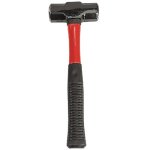List
I once found an unlinked help screen (I think it was for RSView32) that gave a similar list.
At the bottom of the list was:
· Rabbit's Foot
My own "kit" consists of:
· 25' of 25-pin ribbon cable (I know the pinout of that one. And, being flat, I can close the cabinet door on it without problems, or duct tape it to the floor so that it's not a tripping hazzard. It also rolls up into a small ball that fits in my pocket.
· 4 x 9-25 adapters (2 M-F, 2 F-M)
· 2 x Null Modem adapters. (1 9-pin, 1 25-pin)
· 4 Gender Changers (a 25-pin M-M, a 25 F-F, a 9 M-M, and a 9 F-F)
· Serial breakout box. For those rare times when I need to whip up a specialty cable. It's never been used.
With just the ribbon cable and adapters, I can communicate with 90%+ of the things I need to talk to. If it's somethng unusual is needed, chances are that they've got the cable laying around. Also chances are that it was made for a 25-pin serial port, which the adapters solve.
· 2 Ethernet cables. 1 Straight, 1 crossover. Different colors.
Addition stuff:
· Duct Tape (useful to keep panel doors from swinging into you) If you have a quarter roll left, it can be squished flat, and fits in your pocket (Thanks, McGuyver!)
· Ziplock bags (2-Gallon and 1-quart). The 2 gallon are great for cables (like the one for the PCMK card, or ethernet). Also, when I've got the ethernet card in my PC, the PCMK card goes in the bag with its cable, and vice versa. The quart ziplocks are handy for those jumper wires, and to collect screws, nuts, resisters, fuses, and other things that tend to get lost.
· Keys. I do a lot of work with AB PLCs. Occcationally I get a service call to go to a place where the PLC is locked in RUN mode, and the key is "somewhere". Since the keys are the same, a few projects were "accidently" shipped some years back with only 5 keys for 3 processors, and now I've got a PLC-5 and a SLC key of my own on a key ring. I've also picked up some standard panel keys along my travels as well. They make a 4-in-1 key that I'd love to get my hands on (without paying for it, of course). But the frustration is needing to get into a locked panel is slowly being minimized.
· Screwdrivers. You mentioned "small screwdrivers", by which I assume you mean the classic "yellow-handled electrical" type. I also carry a 1" flathead screwdriver (again, pocket sized), for getting into panels with defeatable disconnects.
· Calculator. I picked up a credit-card sized one some years ago (with some company logo on it). Although the laptop has a calculator, a seperate one can come in handy.
· A hub. It's frustrating needing to connect via ethernet, and have no spare ports to connect TO. This thing lives in the trunk, with the bump cap, safety shoes, and duffle bag with a change of clothes. (You never know when a "quick service call" will last longer than anyone expected.) There's also a dry-package meal there too (Easy Mac or better). Water and microwave ovens are usually available at the clients cafeteria.
One important thing about the items on this kit:
CLEARLY MARK EVERYTHING WITH YOUR NAME. These things are small, and tend to get loaned out (since not everyone knows where their towel is). It's nice to get them back.
That's all that comes to mind.






